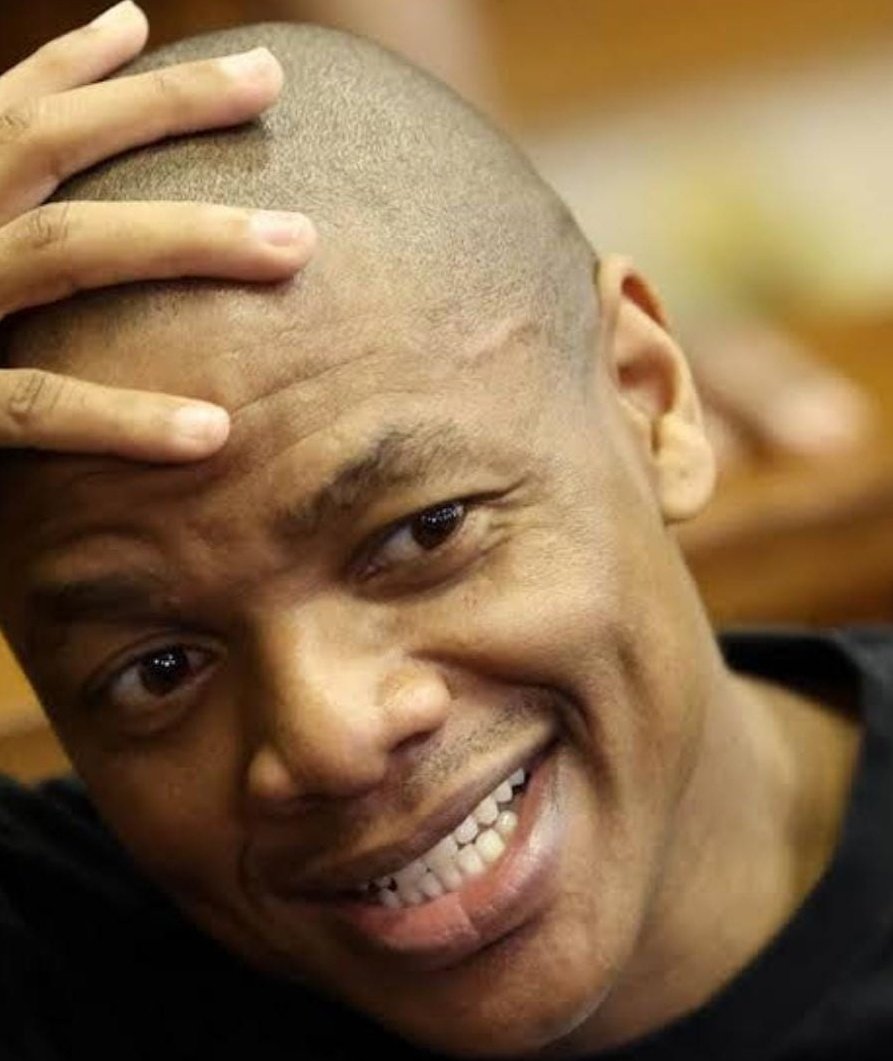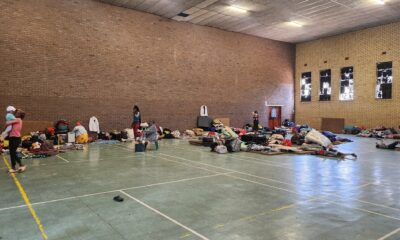News
Human Rights Clash Delays Senzo Meyiwa Murder Trial Over Ankle Shackles

Ankle shackles spark courtroom drama and threaten defence lawyer withdrawal
The high-profile murder trial of late football captain Senzo Meyiwa hit an unexpected snag on Monday as the issue of ankle shackles sparked fierce debate in the Gauteng High Court. What should have been a routine resumption after a three-week break was overshadowed by a human rights dispute, leaving the courtroom tense and proceedings delayed.
Shackled and Protesting: The Case of Mthobisi Mncube
The drama centred around accused number three, Mthobisi Mncube, who arrived late after being physically carried from Kgosi Mampuru II Correctional Services Centre. His delay was caused by his refusal to attend court without the ankle pads he typically wears along with leg shackles.
Correctional services recently banned inmates from wearing these ankle pads following a daring escape from Baviaanspoort Prison, where an inmate removed his pads and shackles before fleeing, an incident that left a warden assaulted and the escapee still at large.
This policy shift meant Mncube was forced to appear only with leg shackles and handcuffs, a situation his legal team called a “gross violation of human rights.” Defence lawyer Charles Mnisi revealed that Mncube was in visible pain and unable to concentrate or effectively communicate during the hearing.
“If the court insists on proceeding without addressing this blatant violation, I will have no choice but to step down as his representative,” Mnisi declared, highlighting the ethical dilemma faced by lawyers defending shackled clients in distress.
Defence Lawyers Unite Against New Restraint Rules
Mnisi was not alone in his criticism. Sipho Ramosepele, who defends Bongani Ntuli (accused two), labelled the justification for removing ankle pads as “flimsy” and punitive. “Punishing prisoners for the actions of others is neither rational nor just.”
Adding to the chorus, Zandile Mshololo, attorney for accused five Fisokuhle Ntuli, criticised the blanket policy of punishing inmates in one centre for escapes elsewhere. “This is irrational and unlawful,” she argued, pointing out that her client had received no explanation for the new restrictions.
Judge Ratha Mokgoatlheng advised the accused to lodge formal complaints with the Judicial Inspectorate for Correctional Services, but acknowledged that the immediate trial could not proceed until the issue was resolved.
Temporary Resolution and Trial Postponement
After a short adjournment, state prosecutor George Baloyi announced a decision had been reached to reinstate the ankle pads for Mncube, allowing the trial to continue on Tuesday.
While this outcome eased tensions for now, the incident cast a spotlight on the fine line correctional services must walk between security and human dignity, especially under the public eye in cases as high-profile as the Meyiwa murder trial.
Why This Matters: Human Rights in the Spotlight
In South Africa, the treatment of accused persons during trial is a barometer of justice and fairness in the system. Shackling is a contentious issue, balancing the need for courtroom security against the rights and dignity of the accused.
Meyiwa’s murder case has captivated the nation since the beloved goalkeeper was killed in 2014, raising questions about justice and accountability. This latest courtroom episode adds a fresh layer of complexity—showing how even procedural details can spark fierce debate over fairness and human rights.
Social Media Reacts
The public weighed in quickly. Many expressed sympathy for Mncube’s predicament, with comments like “No one should suffer in shackles while awaiting justice” trending on X (formerly Twitter). Others worried about the precedent this sets for accused persons and the potential impact on their right to a fair trial.
Some voices, however, stressed the importance of prison security and cautioned against policies that could risk escapes and endanger officials.
As the Senzo Meyiwa murder trial continues, the courtroom drama around ankle shackles serves as a reminder that the pursuit of justice isn’t just about evidence and verdicts. It’s also about upholding the humanity and dignity of all involved, even those accused of the most serious crimes.
The question remains: can South Africa’s justice system find the balance between security and respect for rights? The nation watches closely.
{Source: The Citizen}
Follow Joburg ETC on Facebook, Twitter , TikTok and Instagram
For more News in Johannesburg, visit joburgetc.com



























